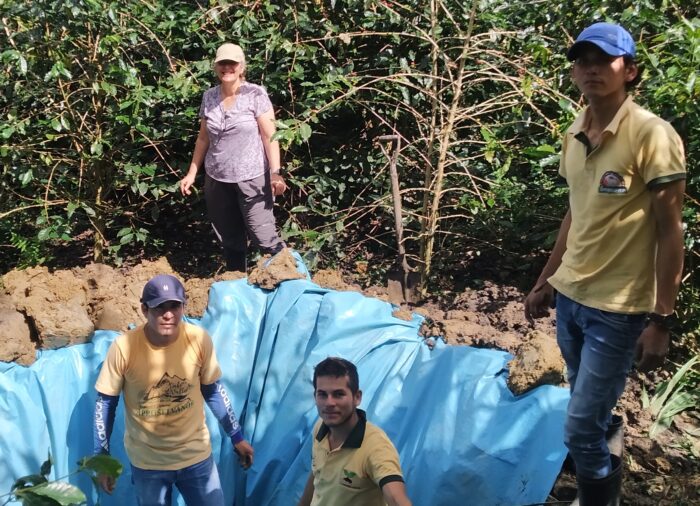 APROSELVANOR, Asociacion de Productores Selva Nor Oriental, a coffee cooperative founded in 2015 by 372 small coffee producers in Peru, holds several organic certifications and has successfully commercialized their product under the brand “Café de los Ocho Valles”. Since 2016, they have been dedicated to the production, processing, and distribution of green coffee to national and international markets. However, ensuring the production and post-harvest processes are completely organic is a primary challenge for coffee organizations in the Americas.
APROSELVANOR, Asociacion de Productores Selva Nor Oriental, a coffee cooperative founded in 2015 by 372 small coffee producers in Peru, holds several organic certifications and has successfully commercialized their product under the brand “Café de los Ocho Valles”. Since 2016, they have been dedicated to the production, processing, and distribution of green coffee to national and international markets. However, ensuring the production and post-harvest processes are completely organic is a primary challenge for coffee organizations in the Americas.
In the post-harvest process, APROSELVANOR discovered their processing facilities were not efficient in removing the high acidity organic byproduct that coffee processing creates after fermentation. This highly acidic organic byproduct is called honey water, which if not processed correctly, could harm crops. APROSELVANOR needed to treat the honey water created from fermentation while still aligning with their organic certification practices (USDA organic, UTZ, and Rainforest Alliance certifications).
The majority of APROSELVANORs members applied experimental methods of digging a hole in their coffee field to dispose of the honey water generated. However, this method does not have any specific decontamination steps, which result in the contaminants leaching into the soil. In May of 2022, Farmer-to-Farmer volunteer Dr. Stacy Hutchinson, an expert on water treatment facilities from Kansas State University Carl R. Ice College of Engineering Associate Dean of Research and Professor of Biological and Agricultural Engineering, helped implement a cost effective, sustainable honey water treatment solution throughout the organization.
During her two-week assignment, Dr. Hutchinson took several field trips to local coffee farms to observe the production process and develop a relationship with the local university for assistance with water analysis, monitoring, and treatment. Successfully treating honey water requires an understanding of the coffee farm, its location (e.g. soils, slopes, elevation, etc), coffee variety (e.g. amount of pulp, sugar content, etc.) as well as the available resources in the area. After developing a deeper understanding of their operations, the objectives of the assignment focused on developing cost-effective treatment methods, encouraging research and the investigation of alternatives that could create positive results over time.
APROSELVANOR and Dr. Hutchinson successfully found a local sedimentary rock with the ability to buffer pH at some coffee farms, although it did not work at all farms visited. By the end of the assignment, Dr. Hutchinson proposed a flexible “treatment train” that incorporates sequential treatment units that can be adjusted for different needs. During the assignment, Dr. Hutchinson was also invited to the local Universidad de San Martin to present about her work in the field and share the results of her work with APROSELVANOR to a wider audience.
Following the assignment, and after discussion with organization members, Dr. Hutchinson recommended continuing to work with the local university to develop a monitoring plan for assessment of treatment system effectiveness and soil health testing near the honey water disposal areas. This data would allow them to prioritize treatment system installations at locations with the highest potential environmental risk. Additionally, Dr. Hutchinson recommended seeking funding to establish a water and soil assessment laboratory at APROSELVANOR to provide more flexibility in monitoring treatment systems and continually testing soil conditions.
NCBA CLUSA’s USAID-funded Farmer-to-Farmer program works with 65 cooperatives and producer organizations in Latin America, many of which produce crops organically. Maintaining USDA organic, UTZ, or Rainforest Alliance certifications can be challenging and sometimes requires technical assistance. APROSELVANOR will implement the recommendations made by Dr. Hutchinson and assess the honey water treatment plan going forward, which will be critical in maintaining organic certifications.


